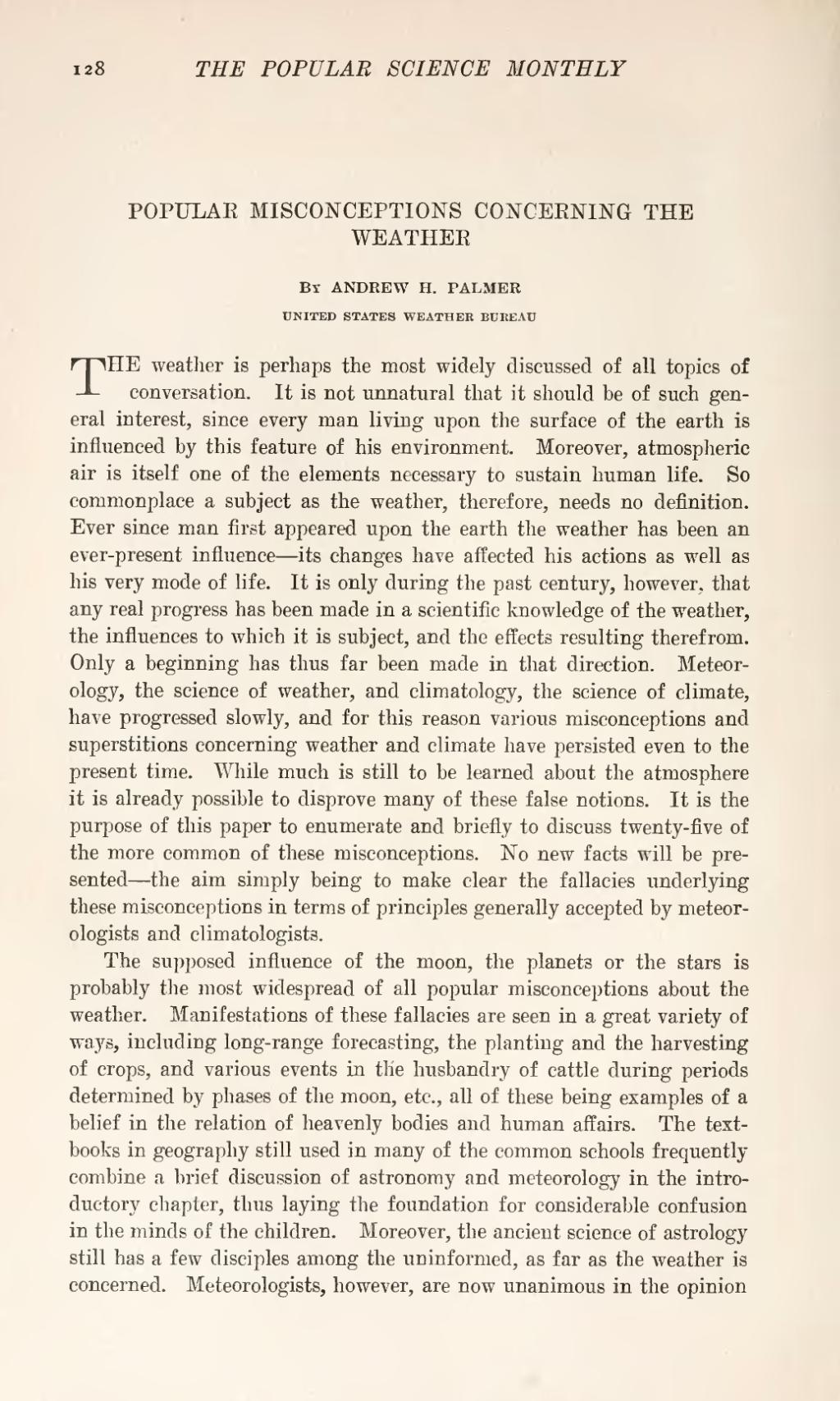| POPULAR MISCONCEPTIONS CONCERNING THE WEATHER |
By ANDREW H. PALMER
UNITED STATES WEATHER BUREAU
THE weather is perhaps the most widely discussed of all topics of conversation. It is not unnatural that it should be of such general interest, since every man living upon the surface of the earth is influenced by this feature of his environment. Moreover, atmospheric air is itself one of the elements necessary to sustain human life. So commonplace a subject as the weather, therefore, needs no definition. Ever since man first appeared upon the earth the weather has been an ever-present influence—its changes have affected his actions as well as his very mode of life. It is only during the past century, however, that any real progress has been made in a scientific knowledge of the weather, the influences to which it is subject, and the effects resulting therefrom. Only a beginning has thus far been made in that direction. Meteorology, the science of weather, and climatology, the science of climate, have progressed slowly, and for this reason various misconceptions and superstitions concerning weather and climate have persisted even to the present time. While much is still to be learned about the atmosphere it is already possible to disprove many of these false notions. It is the purpose of this paper to enumerate and briefly to discuss twenty-five of the more common of these misconceptions. No new facts will be presented—the aim simply being to make clear the fallacies underlying these misconceptions in terms of principles generally accepted by meteorologists and climatologists.
The supposed influence of the moon, the planets or the stars is probably the most widespread of all popular misconceptions about the weather. Manifestations of these fallacies are seen in a great variety of ways, including long-range forecasting, the planting and the harvesting of crops, and various events in the husbandry of cattle during periods determined by phases of the moon, etc., all of these being examples of a belief in the relation of heavenly bodies and human affairs. The textbooks in geography still used in many of the common schools frequently combine a brief discussion of astronomy and meteorology in the introductory chapter, thus laying the foundation for considerable confusion in the minds of the children. Moreover, the ancient science of astrology still has a few disciples among the uninformed, as far as the weather is concerned. Meteorologists, however, are now unanimous in the opinion
